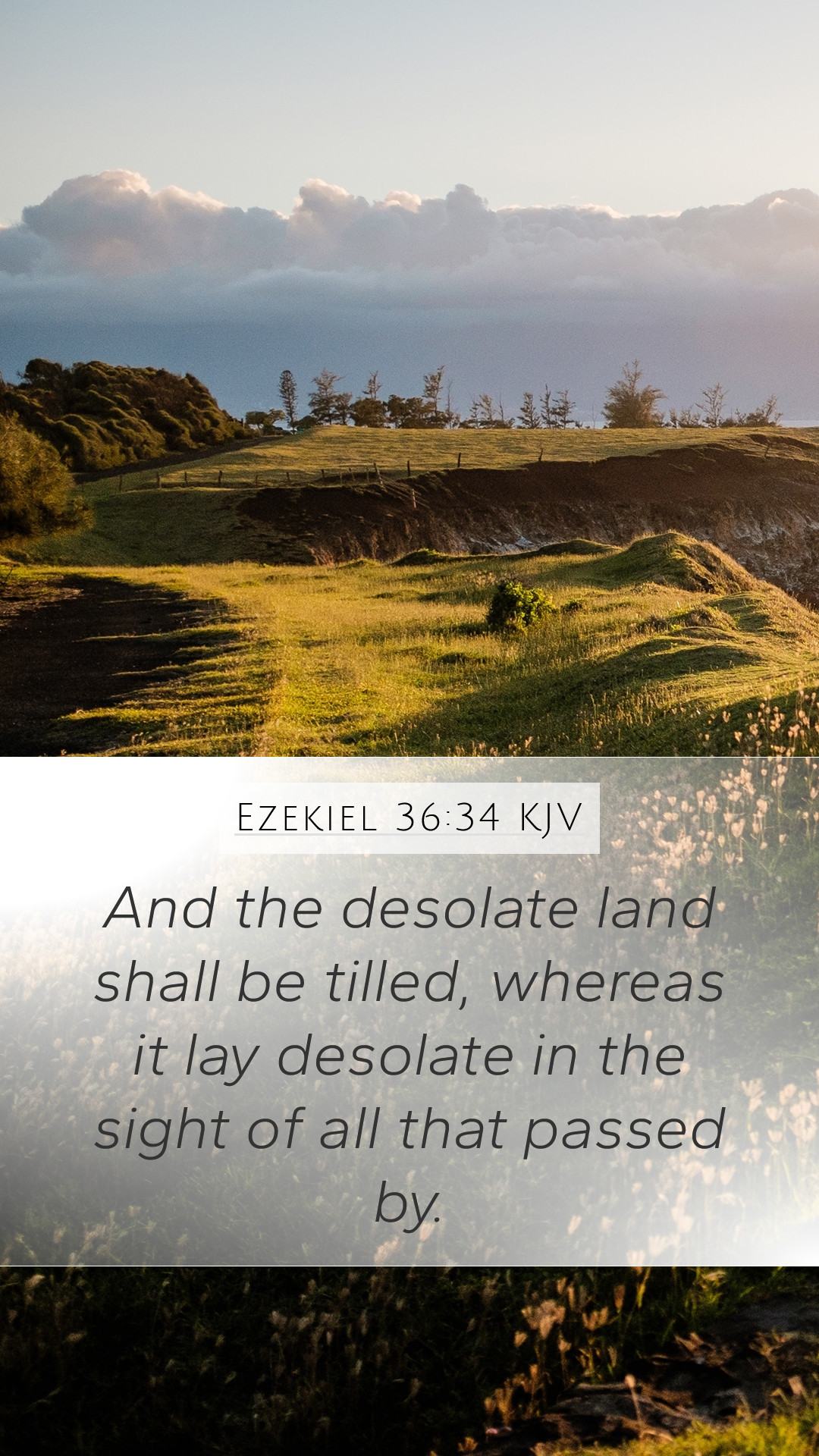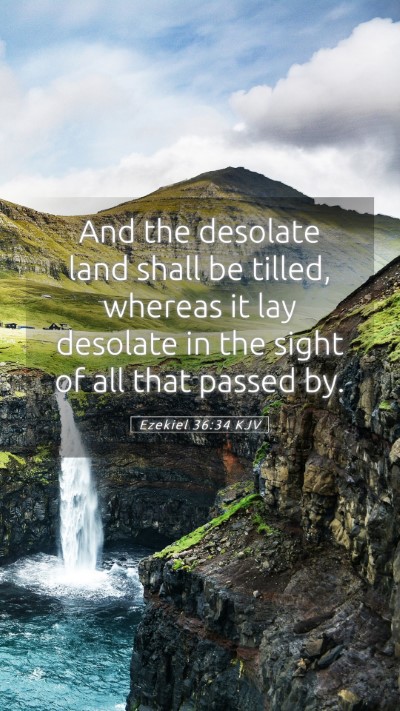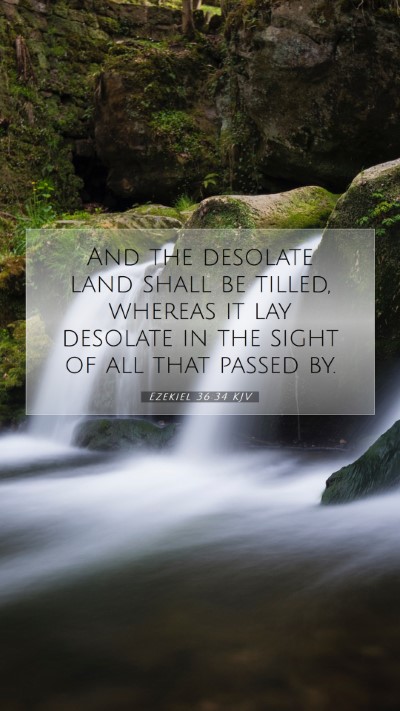Bible Verse Commentary: Ezekiel 36:34
Verse: "And the desolate land shall be tilled, whereas it lay desolate in the sight of all that passed by."
Summary of Meaning
Ezekiel 36:34 speaks to the restoration and rejuvenation of the land of Israel after a season of desolation. This verse signifies hope and renewal, emphasizing God’s power to transform desolate places into fruitful lands. It reflects the broader theme of the restoration that God promises to His people after a period of judgment and exile.
Insights from Public Domain Commentaries
Matthew Henry’s Commentary
Matthew Henry notes that the promise of the land being tilled indicates God's intention to restore not just the people but their physical surroundings. He emphasizes that this transformation is visible to all, illustrating that God’s work is something to be witnessed. Henry suggests that this literal restoration of the land serves as a metaphor for the spiritual renewal that God offers to His people.
Albert Barnes’ Commentary
Albert Barnes explains that the desolation signifies the state of abandonment due to sin and disobedience. The tilled land represents a return to productivity and life, showcasing God’s grace in changing the hearts and lifestyles of the people. Barnes argues that this transformation reflects God’s mercy and the fulfillment of His covenant promises, not just on the physical realm but also in the spiritual lives of His people.
Adam Clarke’s Commentary
Adam Clarke points out that the context of this verse relates to the encouragement and promise of restoration to the Israelites who faced exile. Clarke highlights the significance of this promise as a symbol of hope, indicating that even what was once desolate can be renewed and revived by divine intervention. He underscores the importance of understanding the hardships faced by the people and how God's promises provide comfort and assurance of future blessings.
Understanding Scripture: Broader Themes
- Restoration: The act of God bringing life back to desolate lands parallels the spiritual restoration He offers to individuals.
- Divine Intervention: God’s ability to change situations that seem hopeless showcases His sovereignty and love.
- Covenant Faithfulness: This verse reflects the broader Biblical narrative of God’s unwavering commitment to His people.
Application of the Verse
The message of Ezekiel 36:34 can be applied to our lives today. It reassures believers that no situation is beyond God's ability to transform. Just as the land can go from desolation to abundance, our lives can undergo profound changes through faith and obedience to God. It encourages individuals to trust in God's promises for renewal and restoration both spiritually and in their personal circumstances.
Cross References
- Isaiah 51:3: "For the LORD will comfort Zion; He will comfort all her waste places..."
- Jeremiah 31:12: "They shall come and sing aloud on the height of Zion..."
- Joel 2:25: "I will restore the years that the swarming locust has eaten..."
- Zechariah 8:12: "For there shall be a sowing of peace; the vine shall give its fruit..."
- Romans 11:26-27: "And in this way all Israel will be saved..."
Conclusion
The verse Ezekiel 36:34 is a powerful testimony to God's restoration capabilities—one that extends beyond the physical landscape to the spiritual and emotional realms of life. It serves as an encouragement to believers to seek God’s transformation in their own lives, emphasizing the beautiful promise of renewal. For those engaged in Bible study groups or online Bible study, this verse can spark discussions on God's faithfulness and the significance of restoration in the Christian journey.
Further Study
To delve deeper, consider using various Bible study tools and resources that aid in enriching your understanding. Engage in Bible study lessons that focus on themes of hope and restoration, and explore how these concepts are woven throughout Scripture.
This analysis encourages reflection on how the significance of Ezekiel 36:34 can inform our understanding of both the historical and spiritual climates of our lives today.


